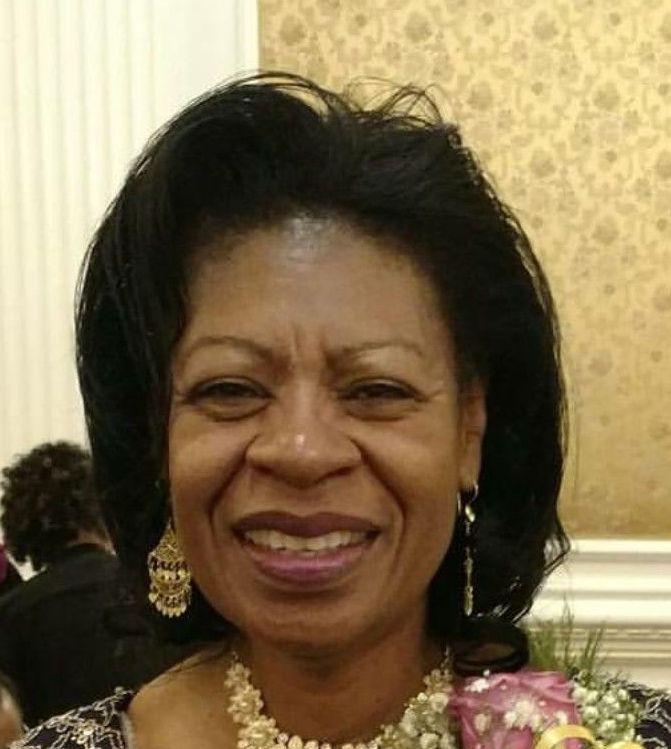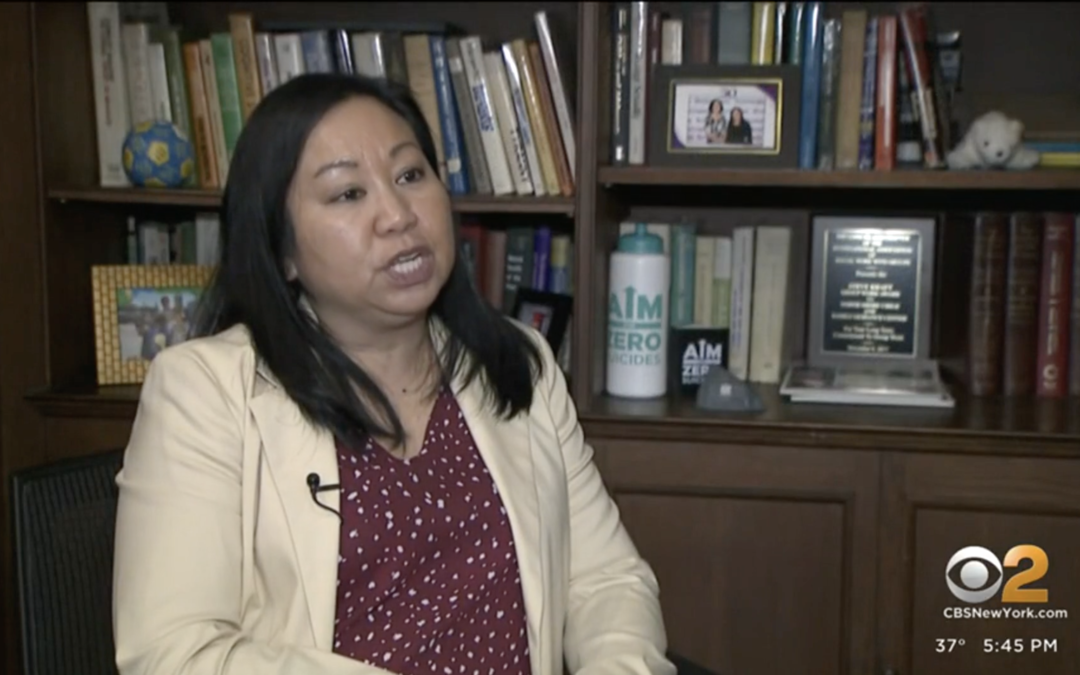
by North Shore Child & Family Guidance Center | Feb 27, 2023 | Blog
By Dr. Nellie-Taylor Walthrust
Getting a driver’s license is a rite of passage that teenagers have been celebrating since the early days of automobiles. Driving makes teens feel more independent than ever before, and it can also provide a break for parents, who spend a great deal of their time carting their kids back and forth from practices and other activities.
But the celebration of this newfound freedom necessitates a crucial conversation and the drawing of a line in the sand: Let them know that driving while using alcohol, marijuana or any other substances is forbidden, and start having these conversations when they are young.
With marijuana use now legal for people 21 years of age and older, your kids may be of the mindset that it’s not a big deal. That’s far from the truth. It’s illegal to drive while under the influence of alcohol and weed or other drugs. According to the NY State Governor’s Traffic Safety Committee, driving under the influence of marijuana subjects you to the same penalties as driving under the influence of alcohol.
And there’s good reason: Marijuana impacts areas of the brain that control perception, balance, coordination, memory and judgment. It can slow reaction times, decrease attention and make it difficult to follow the road and stay in your lane.
We know you don’t want your kids to use marijuana or alcohol, period. But the reality is that many of them do. Having the conversation about safety and driving will not make them any more likely to experiment – in fact, it might have the opposite effect.
Here are some sobering statistics:
- 23% of teens admit they have driven under the influence of alcohol, prescription drugs or marijuana.
- Teen drivers 16-19 have a fatal crash rate almost three times as high as drivers ages 20 and older.
- The percent of crash deaths involving cannabis more than doubled from 9% in 2000 to 21.5% in 2018.
- 24% of teens reported that within the previous month, they had been a passenger in a car with a driver who had been drinking alcohol or using drugs.
As a parent, what can you do to minimize the risks?
The Centers for Disease Control and Prevention suggests creating a Parent-Teen Driving Agreement that clearly sets expectations and limits. Sit with your teen and write down the hazards of driving while impaired and the consequences for breaking the rules. Put it on your refrigerator and update it as your teen gains experience and more driving privileges. (Visit cdc.gov for a sample agreement.)
If your teen plans to go to a party, make sure you talk to the parents where the festivities are being held. Ask if there will be supervision and if alcohol is being served—and if your teens are under 21, the answer should be a resounding no.
Despite taking all precautions, your teens may find themselves in a situation where they are being pressured to drink or use drugs. Tell them that you will be willing and able to get them at any time during the night—and that if they or their friends have been drinking or using drugs, they should contact you for a ride.
As parents, we must do all we can to educate our kids about the dangers of driving while impaired, but we also need to face the reality that even “good” kids can start heading down a dangerous path. Keep the lines of communication open, and if you suspect there may be a problem, consider contacting a professional who is trained in alcohol and substance use.
Bottom line: Let your teen know that driving requires their full attention, so marijuana, alcohol or any kind of substances are not allowed – and that means no texting, too!
 Dr. Nellie Taylor-Walthrust is the Director of at North Shore Child & Family Guidance Center’s Leeds Place, which operates an Adolescent Outpatient Chemical Dependency Treatment Program. Substance use services include counseling youths who are alcohol and drug abusers, children who live in families with a parent who is suffering from alcoholism or drug addiction and youths who have co-occurring chemical dependency and mental health problems. Prevention services are offered to local school districts. Call (516) 626-1971 to learn more.
Dr. Nellie Taylor-Walthrust is the Director of at North Shore Child & Family Guidance Center’s Leeds Place, which operates an Adolescent Outpatient Chemical Dependency Treatment Program. Substance use services include counseling youths who are alcohol and drug abusers, children who live in families with a parent who is suffering from alcoholism or drug addiction and youths who have co-occurring chemical dependency and mental health problems. Prevention services are offered to local school districts. Call (516) 626-1971 to learn more.
Photo credit (for the driving photo): Adobe Stock, By Habitante Stock

by North Shore Child & Family Guidance Center | Feb 24, 2023 | CBS News TV, In The Media

“Nonprofits, Schools Stepping Up to Assist Children in Need of Mental Health Help,” CBS New York News, February 23, 2023

by North Shore Child & Family Guidance Center | Feb 19, 2023 | In The Media, Newsday
Nearly 3 in 5 teenage girls felt persistent sadness in 2021, while 1 in 3 seriously considered attempting suicide, according to a new CDC report that experts said mirrored trends on Long Island.
The survey of 17,000 teenagers across the country by the U.S. Centers for Disease Control and Prevention found that the feelings of sadness among girls was double that of boys.
The CDC conducts the survey every two years, and said rates of mental health problems among young people have gone up with every report since 2011.
Experts on Long Island attributed that to various factors including the pandemic, but some focused on the rise of the smartphone and the constant access it gives children to social media.
Dr. Victor Fornari, the vice chair of child and adolescent psychiatry for Northwell Health, said the declining mental health of teenagers and younger children parallels the widespread use of smartphones.
“We really do see an association timewise with the smartphone in every teenager’s hand in the past decade and the dramatic increase in this degree of depression and suicidal ideation amongst youth,” he told Newsday.
At Long Island Jewish Medical Center in New Hyde Park, where he practices, the number of adolescents coming to the emergency room for suicidal thoughts or attempts has soared in the past four decades, he said.
In 1982 the figure was 250. By 2010, it increased to 3,000. By 2022, it was about 8,000, he said.
Experts also cited other causes of the deteriorating mental health of young people, including pandemic-era isolation, the pressures of re-entry to “normal” life at school, growing drug use, fear of mass shootings, and a lack of therapists and mental health counselors.
Kathleen Ethier, director of CDC’s adolescent and school health division, said that in 30 years of collecting similar data, “we’ve never seen this kind of devastating, consistent findings. There’s no question young people are telling us they are in crisis. The data really call on us to act.”
Jeffrey Friedman, CEO of the nonprofit Central Nassau Guidance & Counseling Services in Hicksville, said his agency has seen an increase in young people and especially girls coming to them for help during the pandemic.
He said that by the time they arrive, many are “very close to the end of their rope” because it is so difficult for their parents to find mental health counselors.
“It’s really hard to navigate the mental health system,” he said. “So when you need to find a child psychiatrist on Long Island, it’s almost impossible. There are very few, and many don’t take insurance. And so parents and families feel alone, that there’s no help out there.”
Monique Barragan, a licensed mental health counselor at the North Shore Child & Family Guidance Center in Nassau County, said the pandemic increased isolation and anxiety among young people. But transitioning back to regular classes has also created mental health challenges.
“It’s almost like a shock,” she said. When they were under lockdown at home, “they didn’t really have to think about other people judging them.”
The nonprofit Family Service League, which works mainly in Suffolk County, said it responded to seven suicides of young people and young adults in 2022, and to four already this year.
The number of school districts requesting anti-suicide programs increased from three in 2021 to six in 2022, said Kathy Rosenthal, the group’s senior vice president.
Fornari, of Northwell, said society needs to find a way to prevent smartphones from undermining children’s mental health.
“How many times an hour do they check their texts, their emails, and WhatsApp, their social media sites?” he said.
“In conversations with kids you’ll hear about all of the ways in which they feel slighted, insulted, angry, attacked by being excluded from an event, or betrayed by a friend,” he said. “It goes on all day long to the point in which they are so distracted that they can’t even focus on anything else.”
“There are clearly many advantages and many benefits from social media but there is also a dark side,” he said, “and I think the mental health crisis in youths is part of the dark side.”
WHAT TO KNOW
- Nearly 3 in 5 teenage girlsfelt persistent sadness in 2021, while 1 in 3 seriously considered attempting suicide, a new CDC survey says.
- Experts said that mirrored trendson Long Island, where they say finding mental health counselors is extremely difficult.
- One expert blamed smartphones and social media for much of the distress young people are feeling.

by North Shore Child & Family Guidance Center | Feb 19, 2023 | Blog
By Guest Blogger Emily Graham
As the parent of a child with special needs, I often find myself feeling exhausted. It can be a lot of work to meet my child’s unique needs, and there are often barely enough hours in the day to get everything done. What’s more, I often feel like I’m operating on constant high alert, always ready to deal with whatever challenges my child may face.
As a result, fatigue is a common problem for parents like me. And it’s not just physical fatigue – I often find myself feeling emotionally and mentally drained as well. It can be hard to keep up with everything, and it’s easy to feel like I’m not doing enough. But I try to remind myself that I’m doing the best I can, and that’s all anyone can ask for. Raising a child with special needs is a unique challenge, but it’s also a rewarding one.
And even on the toughest days, I know that it’s all worth it.
What’s more, I know I’m not alone here. According to research, over 3 million children in the U.S. have a disability of some kind. These kids face many challenges — and so do their parents. Parenting a child with special needs is often a full-time job, and it’s easy to feel overwhelmed by all the daily responsibilities. It’s no surprise, then, that many special needs parents often experience parental fatigue. Though parental fatigue can feel inescapable, this article will help you find ways to mitigate the problem.
Address Any Potential Health Struggles
If you’re not sure whether you are experiencing parental fatigue, there are a few red flags you can look for. Have you been losing sleep? Do you feel like you’re failing as a parent? Have you been struggling with depression or other mental health issues? If you answered yes to these questions, there’s a good chance you’re dealing with parental fatigue.
The latter of these symptoms — mental health struggles — is a particularly concerning issue. If you are depressed, it’s important to seek help from a psychiatric professional. You may receive a prescription for antidepressants. The medication chosen will depend on your symptoms, whether you are on any other medication, and whether you have pre-existing conditions. Although antidepressants aren’t always the right treatment, your provider can help you monitor potential side effects and gauge whether the medication is effective.
Seeking treatment for your mental and physical health is an important part of lowering your fatigue levels. You can improve both by making improvements to your lifestyle, too. Adopting a diet that’s rich in nutrients and low in processed foods has been shown to reduce the inflammation that’s associated with depression. It will also likely improve your energy levels and physical health.
Make Time for Self-Care Activities
Taking care of your physical and mental health is important, but it’s also the bare minimum. In order to effectively combat fatigue, you should truly invest in yourself — and this means creating a self-care regimen. It’s important to find a balance between parenting and self-care, though. Overindulging in self-care can leave your family feeling neglected.
One of the best forms of self-care is pursuing a personal goal. If you’ve always dreamed of going back to school, for example, there are options you can explore. Say you’re interested in learning skills to open your own business. There are various business degrees available through online universities that can help you achieve these goals. What’s more, with multiple start times and the ability to learn from home on your own schedule, you won’t have to worry about making time to attend a traditional in-person class.
Don’t Succumb to Burnout from Parenting
There are so many responsibilities to juggle when you’re a parent to a child with special needs. If you’re dealing with depression, though, it’s imperative not to ignore the problem. Similarly, if you have dreams of going back to school, you shouldn’t put them on the back burner. Ignoring your own needs will only worsen parental fatigue. Find a way to enjoy life and be the best parent you can be — that’s all you can do!
Bio: Emily Graham is the creator of Mighty Moms. She believes being a mom is one of the hardest jobs around and wanted to create a support system for moms from all walks of life. On her site, she offers a wide range of info tailored for busy moms — from how to reduce stress to creative ways to spend time together as a family.

by North Shore Child & Family Guidance Center | Feb 10, 2023 | Anton Media, In The Media
By Dr. Nellie-Taylor Walthrust
Getting a driver’s license is a rite of passage that teenagers have been celebrating since the early days of automobiles. Driving makes teens feel more independent than ever before, and it can also provide a break for parents, who spend a great deal of their time carting their kids back and forth from practices and other activities.
But the celebration of this newfound freedom necessitates a crucial conversation and the drawing of a line in the sand: Let them know that driving while using alcohol, marijuana or any other substances is forbidden, and start having these conversations when they are young.
With marijuana use now legal for people 21 years of age and older, your kids may be of the mindset that it’s not a big deal. That’s far from the truth. It’s illegal to drive while under the influence of alcohol and weed or other drugs. According to the NY State Governor’s Traffic Safety Committee, driving under the influence of marijuana subjects you to the same penalties as driving under the influence of alcohol.
And there’s good reason: Marijuana impacts areas of the brain that control perception, balance, coordination, memory and judgment. It can slow reaction times, decrease attention and make it difficult to follow the road and stay in your lane.
We know you don’t want your kids to use marijuana or alcohol, period. But the reality is that many of them do. Having the conversation about safety and driving will not make them any more likely to experiment – in fact, it might have the opposite effect.
Here are some sobering statistics:
- 23% of teens admit they have driven under the influence of alcohol, prescription drugs or marijuana.
- Teen drivers 16-19 have a fatal crash rate almost three times as high as drivers ages 20 and older.
- The percent of crash deaths involving cannabis more than doubled from 9% in 2000 to 21.5% in 2018.
- 24% of teens reported that within the previous month, they had been a passenger in a car with a driver who had been drinking alcohol or using drugs.
As a parent, what can you do to minimize the risks?
The Centers for Disease Control and Prevention suggests creating a Parent-Teen Driving Agreement that clearly sets expectations and limits. Sit with your teen and write down the hazards of driving while impaired and the consequences for breaking the rules. Put it on your refrigerator and update it as your teen gains experience and more driving privileges. (Visit cdc.gov for a sample agreement.)
If your teen plans to go to a party, make sure you talk to the parents where the festivities are being held. Ask if there will be supervision and if alcohol is being served—and if your teens are under 21, the answer should be a resounding no.
Despite taking all precautions, your teens may find themselves in a situation where they are being pressured to drink or use drugs. Tell them that you will be willing and able to get them at any time during the night—and that if they or their friends have been drinking or using drugs, they should contact you for a ride.
As parents, we must do all we can to educate our kids about the dangers of driving while impaired, but we also need to face the reality that even “good” kids can start heading down a dangerous path. Keep the lines of communication open, and if you suspect there may be a problem, consider contacting a professional who is trained in alcohol and substance use.
Bottom line: Let your teen know that driving requires their full attention, so marijuana, alcohol or any kind of substances are not allowed – and that means no texting, too!
 Dr. Nellie Taylor-Walthrust is the Director of at North Shore Child & Family Guidance Center’s Leeds Place, which operates an Adolescent Outpatient Chemical Dependency Treatment Program. Substance use services include counseling youths who are alcohol and drug abusers, children who live in families with a parent who is suffering from alcoholism or drug addiction and youths who have co-occurring chemical dependency and mental health problems. Prevention services are offered to local school districts. Call (516) 626-1971 to learn more.
Dr. Nellie Taylor-Walthrust is the Director of at North Shore Child & Family Guidance Center’s Leeds Place, which operates an Adolescent Outpatient Chemical Dependency Treatment Program. Substance use services include counseling youths who are alcohol and drug abusers, children who live in families with a parent who is suffering from alcoholism or drug addiction and youths who have co-occurring chemical dependency and mental health problems. Prevention services are offered to local school districts. Call (516) 626-1971 to learn more.
Photo credit (for the driving photo): Adobe Stock, By Habitante Stock

 Dr. Nellie Taylor-Walthrust is the Director of at North Shore Child & Family Guidance Center’s Leeds Place, which operates an Adolescent Outpatient Chemical Dependency Treatment Program. Substance use services include counseling youths who are alcohol and drug abusers, children who live in families with a parent who is suffering from alcoholism or drug addiction and youths who have co-occurring chemical dependency and mental health problems. Prevention services are offered to local school districts. Call (516) 626-1971 to learn more.
Dr. Nellie Taylor-Walthrust is the Director of at North Shore Child & Family Guidance Center’s Leeds Place, which operates an Adolescent Outpatient Chemical Dependency Treatment Program. Substance use services include counseling youths who are alcohol and drug abusers, children who live in families with a parent who is suffering from alcoholism or drug addiction and youths who have co-occurring chemical dependency and mental health problems. Prevention services are offered to local school districts. Call (516) 626-1971 to learn more.



